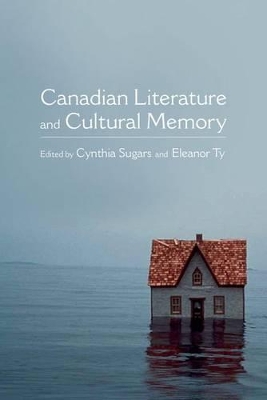Themes in Canadian Sociology
1 total work
Critics argue that contemporary western societies are immersed in a "culture of memory," devoting resources to national histories and heritage, commemoration, public re-enactments, etc. We use these recollections of our national past to maintain a collective identity in the present, among other uses. These essays, edited by Cynthia Sugars and Eleanor Ty, explore how Canadian literature draws on aspects of cultural memory, past and future.
Exploring memory as a "vector of signification" involves a wide range of topics such concepts of as heritage, antiquity, nostalgia, elegy, ancestry, haunting, trauma, affect, aging, authenticity, commemoration, public history. Contributors to this collection consider literary treatments of both mainstream and alternative uses of cultural memory, past and contemporary, urban and rural. From well-known writers like Alice Munro, Al Purdy and Dionne Brand to recreations of Aboriginal pasts and less
common topics like food and Mennonites, there is wide representation of Canada's literary diversity. And equally representative is the collection's historical spread, ranging across early explorer narratives to contemporary works. The collection digs into some of the darker moments in our past
(immigrant experiences, recollections of interned Japanese-Canadians in World War 2, and memories of Native children in residential schools). The sheer ambition of this collection suggests the multifaceted ways that Canada's past is part of our collective cultural memory now. A four-page colour insert - including Seth cartoons as well as unique, little known photography - provides a compelling visual context for the collection's treatment of the complex, multifaceted character of cultural
memory in Canada.
The collection is divided into five parts (amnesia, postmemory, recovery work, trauma, and globalization), all areas of research in the emerging field of cultural memory. These thought-provoking essays reflect the many ways the past infuses the present, and the present adapts the past. Students and scholars will find this rich collection useful in upper-level courses in Canadian literature as well as in cultural studies.
Exploring memory as a "vector of signification" involves a wide range of topics such concepts of as heritage, antiquity, nostalgia, elegy, ancestry, haunting, trauma, affect, aging, authenticity, commemoration, public history. Contributors to this collection consider literary treatments of both mainstream and alternative uses of cultural memory, past and contemporary, urban and rural. From well-known writers like Alice Munro, Al Purdy and Dionne Brand to recreations of Aboriginal pasts and less
common topics like food and Mennonites, there is wide representation of Canada's literary diversity. And equally representative is the collection's historical spread, ranging across early explorer narratives to contemporary works. The collection digs into some of the darker moments in our past
(immigrant experiences, recollections of interned Japanese-Canadians in World War 2, and memories of Native children in residential schools). The sheer ambition of this collection suggests the multifaceted ways that Canada's past is part of our collective cultural memory now. A four-page colour insert - including Seth cartoons as well as unique, little known photography - provides a compelling visual context for the collection's treatment of the complex, multifaceted character of cultural
memory in Canada.
The collection is divided into five parts (amnesia, postmemory, recovery work, trauma, and globalization), all areas of research in the emerging field of cultural memory. These thought-provoking essays reflect the many ways the past infuses the present, and the present adapts the past. Students and scholars will find this rich collection useful in upper-level courses in Canadian literature as well as in cultural studies.
